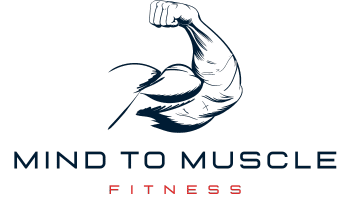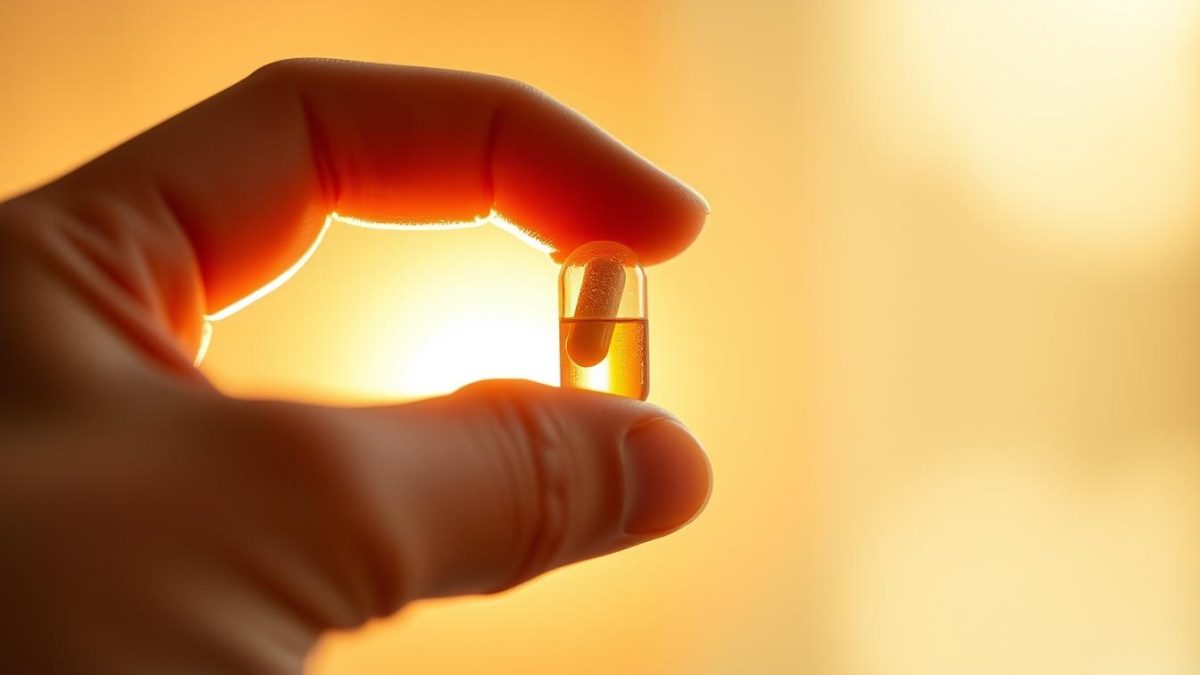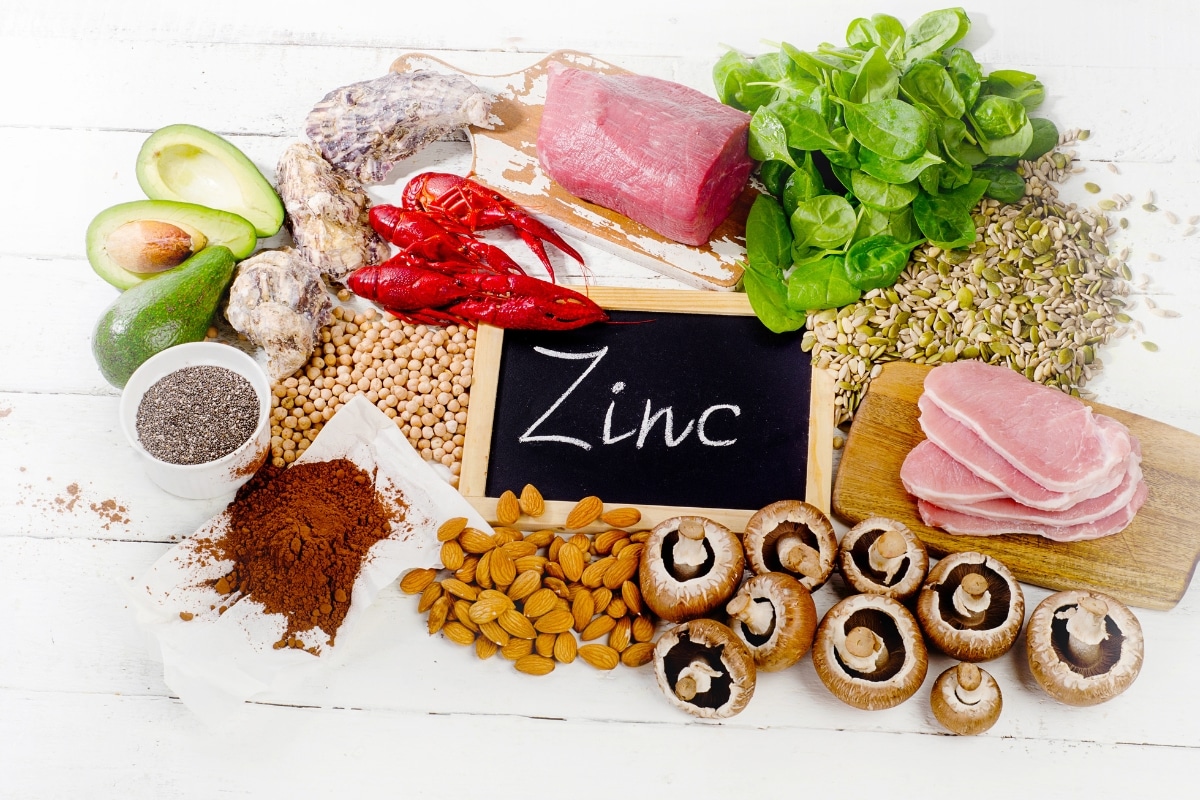
Zinc Benefits for Muscle Growth Explained
I’ve been lifting weights for years, and if there’s one thing I know, it’s that the benefits of zinc for muscle growth are too big to ignore. Sure, you’ve heard about protein and creatine, but zinc is the unsung hero when it comes to building lean muscle.
It’s like the magic ingredient that can help you build more muscle with zinc. This important mineral isn’t just another supplement; it can change the game and help you get stronger and heal faster.
Zinc helps those gains happen in the background by working to balance hormones and speed up the healing process after a tough workout. It’s about how well your body can heal itself and get stronger than it was before. Thus, if you are truly committed to natural bodybuilding, zinc is an absolute must—it will propel your training to new heights.
Let’s get down to the specifics of how this important mineral does its thing. You will understand how important it is to have the right amount of zinc and why this is an important part of building muscle that you should not miss.
Key Takeaways
- Zinc is a powerhouse mineral for supporting muscle growth and hormone function.
- Getting the right amount of zinc can significantly improve recovery post-workout.
- For building lean muscle, zinc plays a critical role in hormone production, particularly testosterone.
- Zinc is important for natural bodybuilding because it helps the body heal itself.
- It’s important to get the right amount of zinc—too much or too little can throw your body off.
- Zinc-rich foods can boost your diet naturally, while supplements can help fill any gaps.
Why zinc is so important for building legal muscle mass
As a supporter of natural bodybuilding for a long time, I’ve learned how important zinc is for reaching peak performance and muscle mass. Research has shown the significance of zinc in promoting muscle growth and recovery, as well as its essential role in numerous bodily functions.
It is my intention to make it clear to you why zinc for athletes isn’t just good for them.
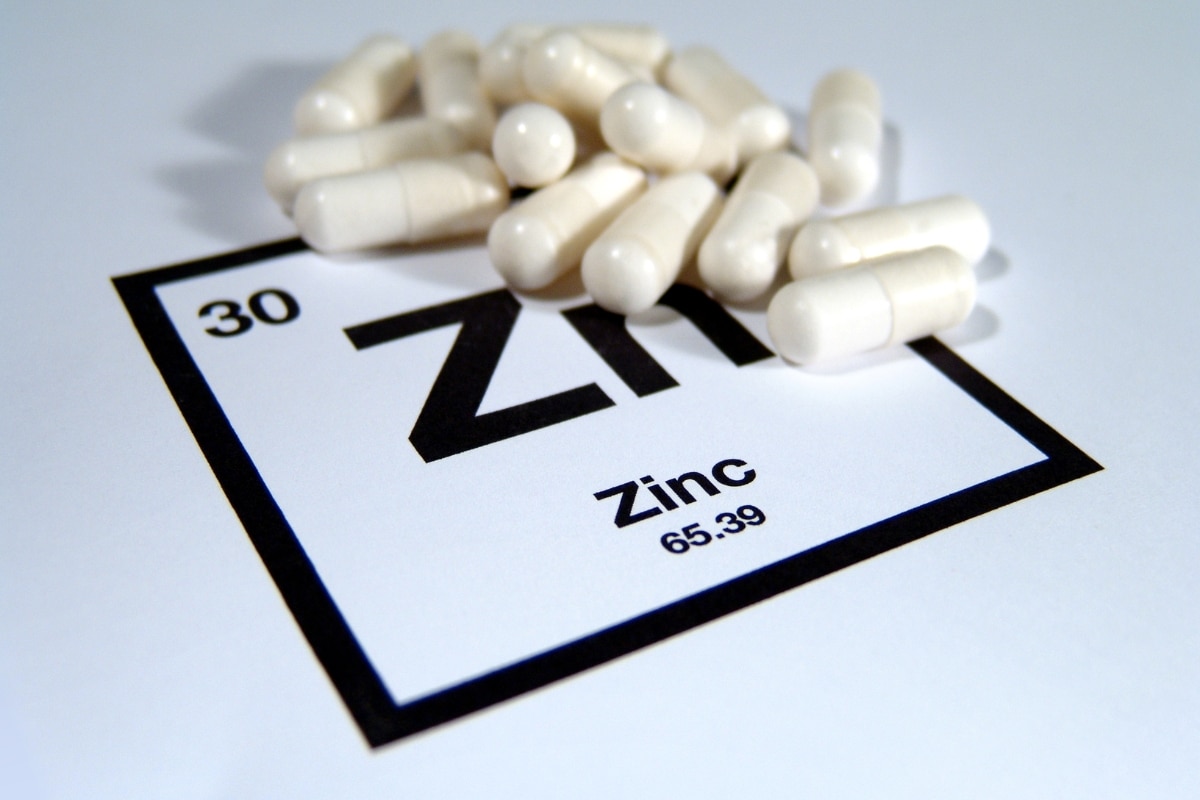
Zinc: A Vital Mineral for Various Bodily Functions
Zinc, a crucial mineral, initiates numerous chemical reactions in the body essential for robust health. It helps your immune system work, keeps your reproductive system healthy, makes proteins, and even helps your brain grow.
Think of Zinc as the backstage crew of a play. They set the scene for you to hit your cues, whether that’s breaking personal records or sculpting muscles with amazing accuracy.
How Zinc Deficiency Can Impact Muscle Growth and Recovery
Keep this in mind: the zinc deficit is your gains’ worst enemy. It shakes the very foundation of muscle growth and recovery.
Think about it—without adequate zinc levels, those essential chemical reactions for muscle development can’t occur at full throttle, weakening your entire performance.
Science supports this, demonstrating that low zinc levels can cause your otherwise powerful muscles to function less than optimally, so if you’re serious about growth, you can’t ignore this.
Zinc Supplements vs. Whole Food Sources: What You Need to Know
Now here’s the deal: While zinc-rich foods like red meat and shellfish pack a powerful punch, they aren’t the sole avenue for your zinc intake. A high-quality zinc supplement could very well fit the bill for those looking to optimize their levels, especially since modern eating habits often fall short of our nutritional needs.
But never underestimate the power of a well-rounded diet—foods naturally high in zinc not only support muscle development but also promote overall health.
- Zinc supplements usually provide a substantial dose, making them ideal for athletes looking to support muscle synthesis and recovery.
- Zinc-rich foods contribute not only the essential mineral but also an array of nutrients beneficial for muscle development.
- A balanced approach to zinc intake through both diet and supplementation may be the key to unlocking peak muscle performance.
In the end, whether your zinc comes from a juicy steak or a top-notch supplement, what’s non-negotiable is this: you need sufficient levels of this mineral to facilitate muscle growth, maintain your stamina, and keep your recovery on track.
So make sure every meal and supplement regime brings you closer to those bodybuilding goals we all strive for.
The Chemical Dynamics of Zinc and Muscle Protein Synthesis
Let me level with you. I’m all about creating the perfect anabolic environment for muscle growth. And when we talk about beefing up, we cannot glance over the dynamism of zinc.
This mighty mineral is key to stimulating various chemical reactions, including those leading to muscle protein synthesis. So, let’s break down some science and see how zinc pulls its weight in the gym.
Understanding Zinc’s Influence on Hormone Levels
Zinc is like a backstage player that sets the stage for hormones, like testosterone, to perform. Testosterone levels are crucial for stimulating muscle growth, and zinc plays a starring role here. It’s not just an accessory; zinc actively supports testosterone production, which in turn boosts protein synthesis. This means when your zinc intake is on point, your muscles get an exclusive invite to the gain-train.
Research has consistently shown that maintaining optimal levels of zinc correlates with healthy testosterone levels, a cornerstone for the anabolic state we chase after.
The relationship between zinc and protein structures is significant.
But zinc isn’t just about the hormones; it’s hands-on with the protein structures, too. Beyond hormone regulation, zinc is integral to maintaining the stability and formation of protein structures necessary for muscle growth.
It’s like zinc, which is the scaffold that keeps the building blocks of your muscles steady as they grow. Proteins, you see, are not just strings of amino acids; they’re complex, and zinc ensures they fold and function correctly for optimal strength and mass.
- Zinc contributes to stable and functional protein transcription factors, essential for reading the genetic code that dictates muscle growth.
- It engages in muscle protein synthesis, which is basically the process of packing on those lean muscles we strive for.
- Some additional benefits of this versatile mineral include strengthening muscle tissue and aiding in recovery processes.
Armed with this knowledge, it’s clear that zinc should be a non-negotiable part of your training diet. Whether you’re loading up on zinc-rich foods or fine-tuning with supplements, getting the right amount can make all the difference in your muscle-building journey. So, keep that zinc in check and watch your muscles thank you for this.
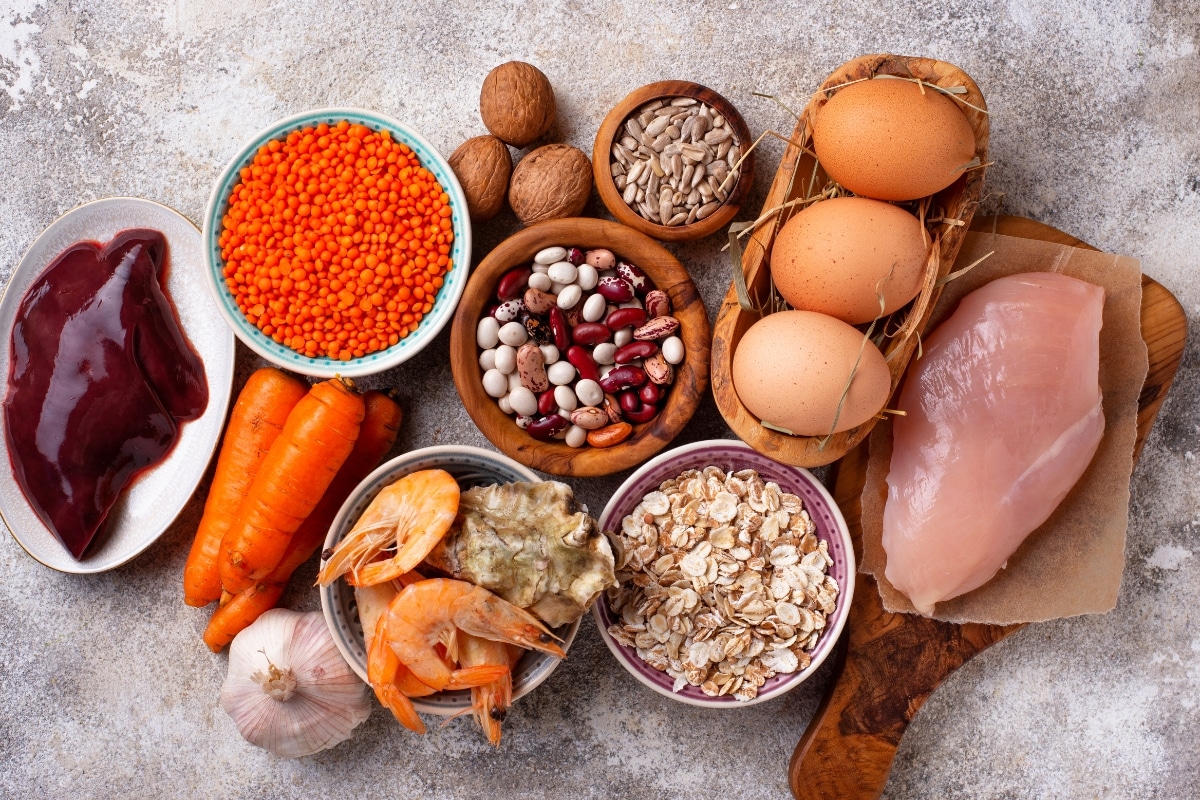
Benefits of Zinc for Muscle Growth
As someone who lives and breathes the bodybuilding lifestyle, I’ve learned that the benefits of zinc for muscle growth can be the difference-maker. Let me lay it out for you: zinc is crucial for building lean muscle, enhancing muscle strength, and repairing muscle tissues. It’s not just about bulking up; it’s about fine-tuning your body so that every lift, every rep, gets you closer to your peak.
Consider zinc the trusty sidekick to your protein; you’re not maximizing your gain potential without it. It acts directly on the muscle mass by pitching in with hormone production and protein structure regulation.
Most crucially, after an intense workout, it’s zinc that steps in to support the repair mechanisms. That soreness you feel? Zinc is on the front line, battling to get your muscles restored and ready for action.
Let’s break it down table-style to show you just how indispensable zinc is:
| Role of Zinc | Impact on Muscle Growth |
|---|---|
| Hormone Production | Supports testosterone, a key player in muscle synthesis. |
| Protein Structure Regulation | Stabilizes proteins necessary for muscle fiber repair and growth. |
| Post-Exercise Repair | Crucial to the recovery process is reducing soreness and downtime. |
This mineral performs crucial tasks in the background, ensuring that the proteins you consume actively contribute to enhancing your gains. So next time you’re stocking up on supplements or planning your meals, remember to give zinc the spotlight it deserves. Your muscles will thank you for it.
Zinc and Testosterone: The Link to Lean Muscle and Strength
Let’s talk about a mineral that’s a total game-changer for us gym-goers—zinc. Science firmly supports this, making it more than just gym lore. Zinc literally fuels our ability to pack on that lean muscle mass, thanks to its role in testosterone production.
So here’s the scoop on how zinc ramps up free testosterone and supports our growth and recovery.
Mechanisms of Zinc’s Impact on Free Testosterone Production
I’m lifting the lid on a key secret to muscle growth: zinc and its effect on free testosterone. We know that for muscle building, this hormone’s got to be in play, and zinc is essential in dialing up its levels in your body. Research has shown that a zinc deficiency can significantly impact testosterone production, which in turn can stall your progress in the gym. What’s more, zinc isn’t just for men—it plays a vital role in recovery, performance, and even female muscle growth insights as women also need balanced hormone levels for optimal strength gains. So, whether you’re bulking up or toning down, embracing zinc in your diet or supplementation might be the game-changer you’ve been missing.
By capturing more free testosterone, which actively stimulates muscle growth, zinc directly contributes to your muscle growth. With the proper zinc benefits embraced, you’ve got a powerful ally in the quest for lean muscle mass and strength.
Zinc’s Role in Enhancing Muscle Building with Zinc and Recovery Processes
Did you push it hard in the gym? Zinc is your best post-workout pal when it comes to recovery. This mighty mineral steps up for muscle regeneration, helping you bounce back faster and grow stronger.
Maintaining a balance in your zinc levels also enhances your body’s aerobic capacity, ensuring your muscles receive oxygen-rich blood where they require it most. We aren’t just talking quicker bounce-backs post-workout; we’re talking serious muscle building with zinc.
Navigating Zinc Dosage for Optimal Muscle Gain
Don’t wing it with how much zinc you take—there’s science to this. With the recommended daily altitude set at 11 mg, dipping too low could ground your muscle gains. But soaring too high past safe thresholds, particularly over 30 mg in pursuit of muscle growth, could mess with other crucial minerals.
Remember, we’re in it for balance, boosting not just zinc supplementation but our overall mineral harmony to keep our bodies in top muscle-making shape.
- Adequate zinc intake is key for unfettered testosterone production, which is essential for muscle growth.
- Free testosterone levels rely on zinc, and they’re what get our muscle-building engines roaring.
- Post-exercise, zinc is there for you, speeding up recovery and promoting muscle repair.
- To cap it off, zinc amplifies your aerobic capacity, feeding those muscles with the fuel they need for growth.
| Zinc Impact | Muscle Growth | Testosterone Production | Recovery |
|---|---|---|---|
| Free Testosterone Levels | Enhanced potential for lean muscle mass | Increases production | Accelerates muscle repair |
| Zinc Dosage | Key for optimal gains | Affects hormone balance | Supports post-workout recovery |
| Aerobic Capacity | Improves exercise performance | Can facilitate healthier levels | Assists in oxygen delivery to muscles |
Conclusion
We’ve journeyed through the ins and outs of zinc’s impact on muscle growth and why maintaining optimal zinc levels is crucial for athletes like me and you. It’s not just about the reps and sets—it’s about fueling our bodies with the right nutrients to perform and recover effectively.
Let’s reinforce the importance of zinc for those of us aiming for peak physical condition.
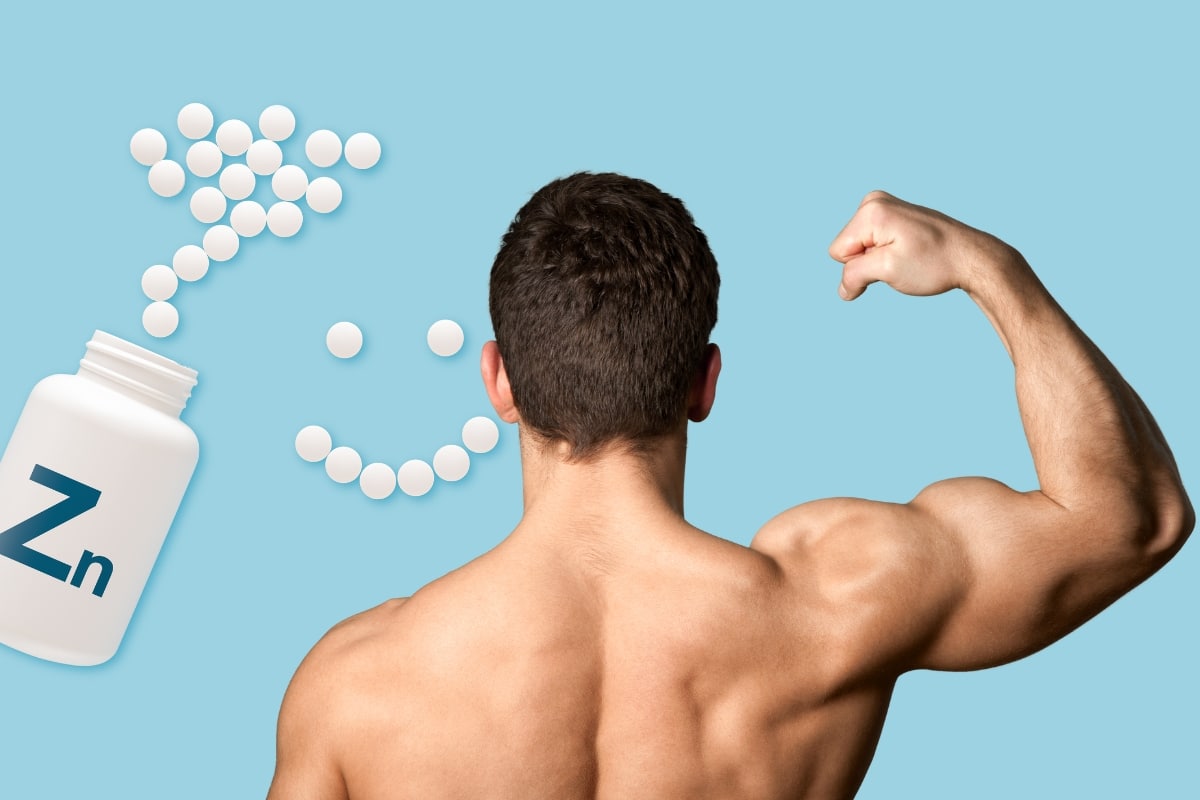
The Importance of Maintaining Optimal Zinc Levels for Athletes
Our immune system and muscle repair mechanisms rely heavily on zinc, making it a non-negotiable for athletes aiming for the top. Skimping on zinc levels can dramatically dampen our performance and slow down recovery.
It’s vital that we keep our zinc game strong to aid muscle development and safeguard our health. After all, what good is training hard if we’re not backing it up with proper nutrition?
Zinc-Rich Foods vs. Supplements: Tailoring Your Diet for Muscle Development
When it comes to nailing that balanced diet, diversity is our ally. For muscle development, we lean on zinc-rich foods like red meats and shellfish, but let’s not forget about plants. Even with phytates, foods like nuts and beans still pack a zinc punch.
Yet, sometimes gaps exist, and that’s where a solid zinc supplement can step in. It’s all about tailoring your diet to feed those muscles the zinc they crave.
Striking the Balance: Safety Concerns Around Zinc Supplementation
When it comes to zinc supplements, safety is paramount. We strive to prevent overdosing by closely monitoring the interactions between zinc and other minerals, such as iron and copper.
It’s a delicate dance, staying within that 40 mg upper limit to keep potential toxicity at bay. Because building muscle is about smart choices, not just heavy lifting—zinc included.
FAQ
What are the benefits of zinc for muscle growth?
Zinc is an important mineral for building lean muscle because it helps the body do many important things, like making protein, keeping hormones in balance, and healing and rebuilding muscle tissue. It helps the body make testosterone, which is important for building muscle.
Why is zinc an essential mineral for athletes?
Zinc is important for athletes because it helps the immune system work better, speeds up muscle recovery, supports hormone health, and keeps energy levels steady. It’s especially important for people who work out a lot and want to make their body’s anabolic environment better.
How can a zinc deficiency impact my muscle development?
A lack of zinc can make it much harder for muscles to grow and heal. It could cause testosterone levels to drop, protein synthesis to slow down, and the immune system to become weaker. All of these things can hurt muscle growth and athletic performance.
Are zinc supplements better than whole food sources for muscle growth?
Although zinc supplements can help make sure you get enough zinc, especially if you don’t eat enough zinc-rich foods or if you have a health condition that makes you need more zinc, whole food sources are usually better because they are more bioavailable and contain other nutrients that help the body absorb zinc.
How does zinc influence hormone levels for muscle building?
Zinc is a key factor in the production and regulation of testosterone, a hormone that is critical for muscle synthesis and growth. Adequate zinc levels can support optimum testosterone levels, thereby fostering a conducive anabolic environment for muscle building.
Can zinc improve my recovery after workouts?
Zinc does have antioxidant properties that help protect muscle tissues from damage and swelling, which speeds up the healing process. In addition, it helps with muscle protein repair, which is very important after intense workouts.
What is the optimal zinc dosage for muscle gain?
For those engaged in resistance training, the recommended zinc dosage for muscle gain is about 30 mg per day. It is essential to consult a healthcare professional and consider individual health needs before adjusting zinc intake.
How do I maintain optimal zinc levels as an athlete?
To keep your zinc levels at a healthy level, eat a variety of zinc-rich foods, like nuts, seeds, legumes, red meat, and shellfish. If necessary, a doctor can assist you in taking supplements, and it’s crucial to regularly monitor your zinc levels, particularly during intense training.
Should I opt for zinc-rich foods or supplements for muscle development?
This depends on what you eat and how much zinc you need. A diet full of whole foods is the best way to get the zinc you need. Supplements can help you reach your goals if you can’t eat certain foods or have higher needs because you work out a lot.
What are the safety concerns around zinc supplementation?
Large amounts of zinc supplements can be harmful and prevent the body from absorbing other essential minerals, such as copper and iron. To avoid bad effects and make sure that taking zinc supplements doesn’t get in the way of your overall nutritional needs, it’s important to stay below 40 mg per day.
